Hearing aids are sophisticated digital devices that are programmed to an individual’s hearing loss using computer software. It is essential that these devices are fitted by a professional to ensure they provide safe and appropriate levels of amplification, and deliver optimal benefit to the user.
At Evergreen Audiology, all hearing aid fittings are subject to a one-on-one fitting appointment with your audiologist, and a 30-day trial. Hearing aid sales without appropriate, individual, clinical care are not available.
What you need to know about hearing aids

Hearing aids are available in a wide range of sizes and styles to accommodate any degree of aidable hearing loss from very mild, to severe-profound. The majority of today’s hearing aids are sleek, discrete, and highly innovative, including great features such as Bluetooth connectivity (for audio streaming, hands-free calls, and mobile Apps for real-time fine-tuning), lithium-ion rechargeable batteries, and a range of wireless accessories to enhance your listening experience.
Key points to remember are:
- Your hearing loss may be better managed by certain styles of hearing aid (e.g. custom or behind-the-ear) to achieve the best possible audibility, sound quality, and physical fit;
- The “technology level” of the hearing aid is its capacity to process the incoming sound to support you in different listening environments, e.g. focusing on speech in background noise, or reducing wind noise – not the amount of amplification it can provide;
- Hearing aid technology ranges from ‘basic’ to ‘premium’ across all hearing aid styles and brands. The sound processing features in the higher technology levels cater towards increasingly demanding listening situations, so choosing the level that meets your lifestyle and listening requirements is the primary decision you will need to make to get the best performance for you;
- The price of a given hearing aid is largely based on the technology level of the device, not the style;
- For peace of mind, you will have the opportunity to trial your chosen hearing aid(s) for 30-days, and remember…
Want to know more?
See our Hearing Aid FAQs or come in for a chat with our audiologist about your hearing needs.



